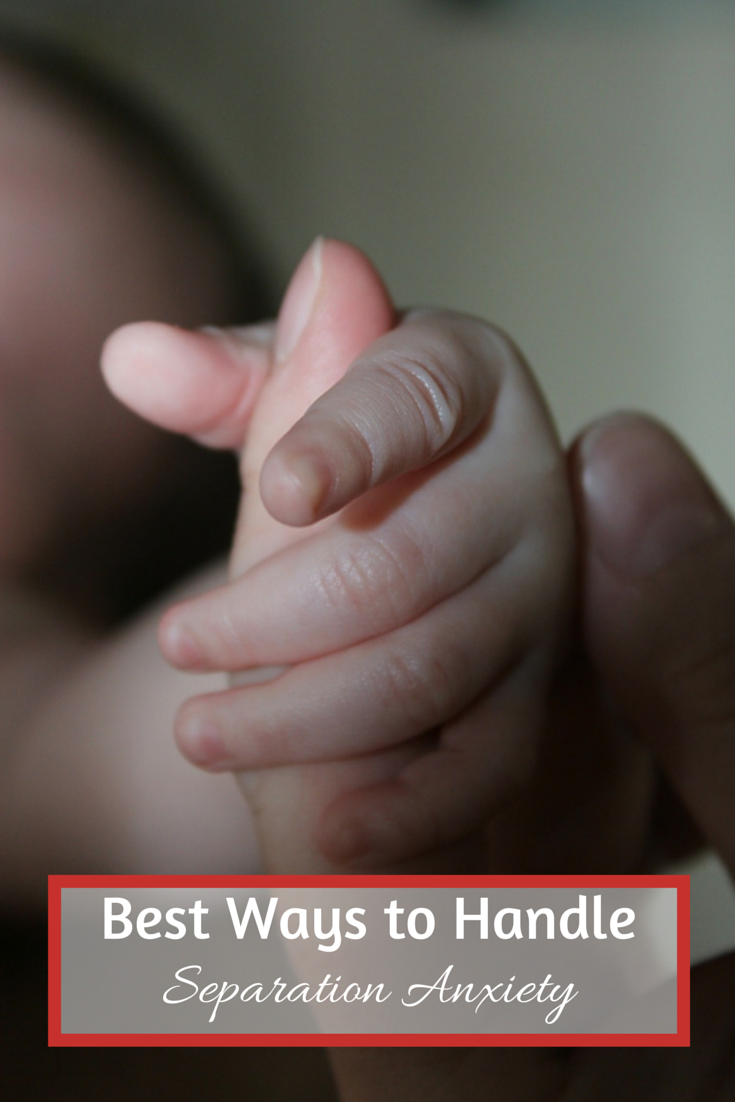I remember the days of my military career, there would be times when I had to leave my now 3 year old for weeks on end. It was tough for me but especially tougher on her. I remember the first time I left and came back, she looked at me like I was a total stranger. It was then I decided that as soon as I was able I was leaving the army and I was going to spend more time with her. Leaving your children is hard enough, but when you have a child with separation anxiety, it can be even more challenging. If your child has a hard time being left behind, there are ways you can handle the situation so that separation anxiety becomes a thing of the past. Check out these best ways to handle separation anxiety.

Prepare Them
If you’re planning on leaving your child at a daycare or with a family member, be sure to prepare them first. It can be shocking for your child to be suddenly dropped off somewhere unfamiliar with no warning. This can cause separation anxiety to develop, especially if they don’t know what to expect. To help keep this from happening, be sure to prepare your child first. Let your child know where they’ll be going and what they’ll do while there. You’ll also want to let your child know when you’ll be back.
Give Them Something Familiar
If your child is anxious about being left behind, be sure to give them something familiar to be comforted with. This could be anything, including leaving your child with a familiar caretaker or sending them off with a favorite toy or blanket. By giving your child something familiar, they’ll be more likely to adapt to unfamiliar situations. This can help lessen their separation anxiety so that you can leave them for a few hours.
Get Them Excited
To help handle your child’s separation anxiety, you’ll want them to get excited about being left behind. Arrange to have a grandparent or close family member take your child somewhere fun, like the zoo or park. For the hours or days prior to this excursion, continue to hype up your child about the event. Let them know how much fun they’ll have so that when it’s time to leave, they’ll be excited to go.
Practice At Home
If your child is extremely anxious when you leave, you might want to practice at home. Follow all of the previous steps, but instead of leaving the building, you’ll only be leaving the room. You can still let your child know what to expect and get them excited. Give them a new toy or something exciting to do in the room by themselves while you step out and then return within the time frame you’ve given them. This last part is extremely important so that your child can learn to trust that you’ll return after you’ve left.
It can be very hard to leave your child when they’re feeling anxious, but this is an important step in their development.
What are some ways you handle your child’s separation anxiety?
